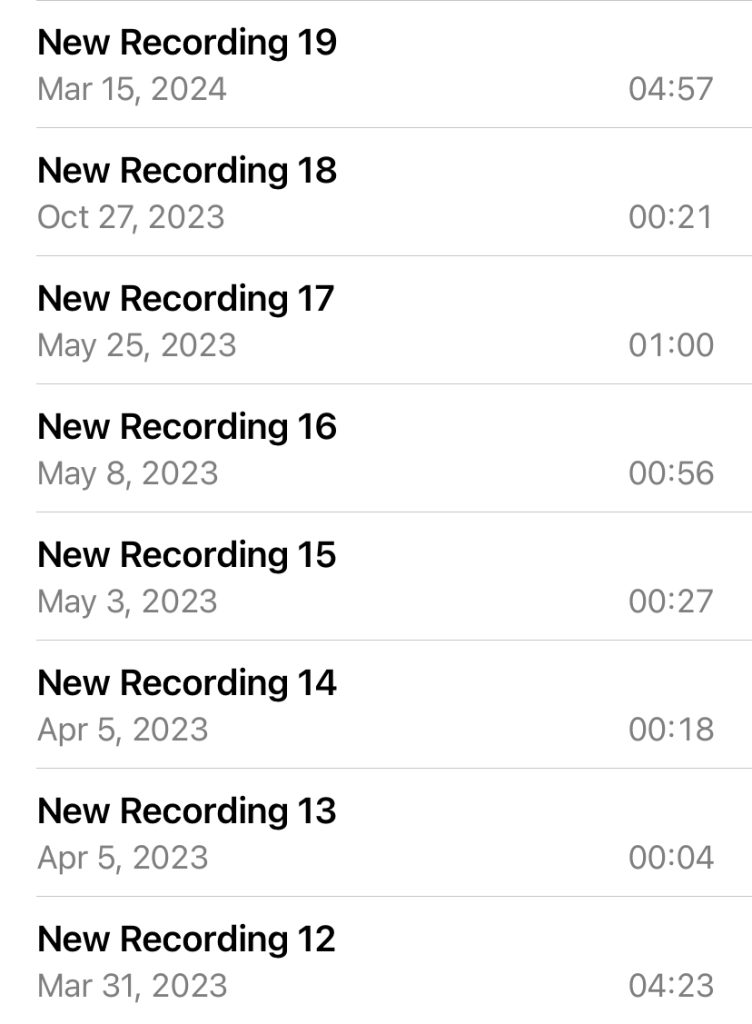This is the first in a series called “How’s the Writing Going,” an attempt to make more of my research public, for the betterment of my wordsmithing and the possibility of feedback. Thanks to Brooke for asking me this very question every time she sees me, sending me into a panic.
When talking with two of my colleagues this week, I confessed that one of the ways I try to stay on track with my writing is to have a side project that I can turn to that actually helps me with the main project. My main project is the dissertation and my side project is reading about academic writing. I didn’t mention whether this was successful or not–I have long-standing issues with motivation and procrastination–but at the very least, when I’m not doing my academic writing, I am writing about academic writing, academically.
Today, faced with clarifying the last few questions on my dissertation proposal–the proposal that I need to get ready now–I started reading an article about why there is so little writing instruction at the graduate level. The article by Laura R. Micciche and Allison D. Carr is from 2011, but in the XX years I’ve been slogging toward the PhD, this is still a bit of an oversight in graduate education.
In “Toward Graduate-Level Writing Instruction,” Micciche traces the history of graduate writing instruction while suggesting that our current practices–assuming students learn by modeling the work they’re reading–is not enough to develop them into successful scholars.
Carr, one of the students from her writing class, adds commentary and insight into the insecurities and emotion graduate students bring to each writing project and how having a structured focus on graduate writing not only allows them to add their voice to the larger academic conversation, but reinforces the idea that academic writing is not something once learned, but part of an ongoing project.
“It’s no secret,” Micciche explains, “that graduate students (much like faculty) regularly encounter academic writing as an emotionally fraught, privately experienced hardship” (479). In the last few years I’ve found my academic writing to be an isolating experience.
During Covid, there would be more opportunities to write with friends via Zoom than in recent semesters. We’re busier and more protective of our time off, so getting together isn’t as convenient as facing the screen. Even before we went remote, life circumstances and a long commute pushed me away from the typical bonding experience of writing seminar papers with my peers.
When I finally made it to my comprehensive exams, the written portion was produced in the solitude of my basement campus office, right before the fall semester. I still haven’t gone back to read what I wrote. I shudder to think of it.
To be fair: I’m not one to reread anything once I’ve submitted. Once I release it to another set of eyes, I’m done with it. It makes me willing to kill all my darlings. I am pretty chill with editorial suggestions as well, even if I’m not quick about it.
It does give me the false impression that I don’t need to revise. I know I need to revise, but I would rather revise with outside feedback. Just tell me what doesn’t work. I enjoy writing and while I have some satisfaction after I’ve written something, it’s nothing compared to the feeling when the fingers are moving on the keys. (Like right now, this is pretty cool. Clickety-clickety.) But after I’m done, it feels like someone else composed the text. It’s as if I wrote it in a fugue.
This makes revising a challenge, especially for the dissertation proposal. I have no idea what I was thinking when I initially wrote those lines, and now I need to clarify something that, for all I know, came to me in a dream.
Training in graduate writing could have helped me develop a writing practice and given me some tools to flourish–or at least produce–in that solitary environment, and quite possibly, removed a bit of the impostor syndrome that makes graduate students think they don’t have what it takes to enter the larger academic conversation.
When I told my dissertation advisor that I didn’t think I had the right to write about my topic, she just flat out told me, “Yes you do.” Okay then. That’s that.
Finding the time to write around family obligations and teaching is another skill that I’ve yet to fully develop. While everyone’s situation is a bit different, I think there’s room in the graduate curriculum to address these challenges. We spend time teaching graduate students how to be teachers–to the advantage of the university that uses them for labor–but we need to spend time teaching them how to be scholars.
Producing scholarship is a necessity in the higher-ed job environment and students should be developing the skills necessary to advance their field. The more contingent faculty that appear in scholarly journals, the harder it will be to ignore their value as experts in their respective fields. The uncertainty of a post-graduate career, the pressures to perform in class, and the outside obligations most of us face, it’s no wonder graduate students approach the empty page with apprehension.
One of Micciche’s graduate students had the opposite issue. In class discussions with other graduate writers, she would “recognize the paralysis, the inner critic who stifled first drafts, and [her] tendency toward the entropy of procrastination rather than face the terror of generating and clarifying an idea” (480). My first drafts, previously, have (just) gotten me to this level of academic work, but with the dissertation looming, this is no longer the case.
And I’m looking forward to it.
Micciche and Carr’s scholarship is one of a number of articles and books that I’ve been reading instead of working on the diss (aka Project Space Cats), and in the interest of making my writing and my research clear and public, I’ll be sharing more here in the future. It will feel less like procrasti-learning if I actually make something of it.
If there’s an article about academic writing, particularly graduate writing, that you think I’d be interested in, let me know. I’m just starting my dissertation and there’s plenty more task avoidance to do.
Source: Micciche, Laura R., and Allison D. Carr. “Toward Graduate-Level Writing Instruction.” College Composition and Communication, vol. 62, no. 3, 2011, pp. 477–501. JSTOR, https://www.jstor.org/stable/27917909.



